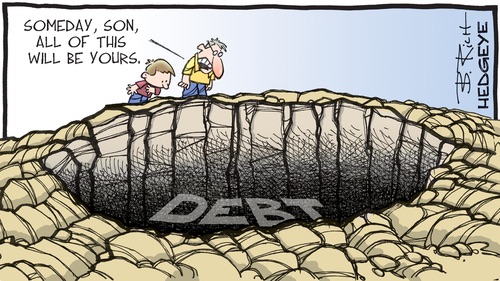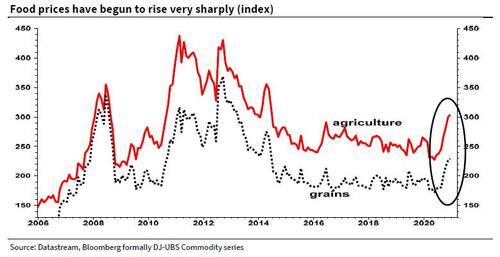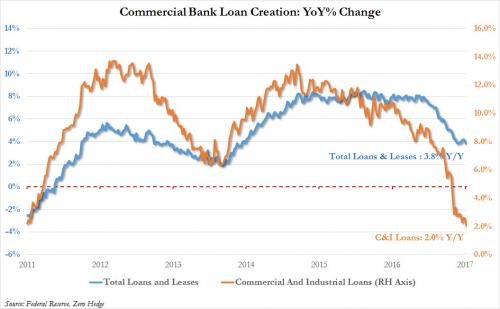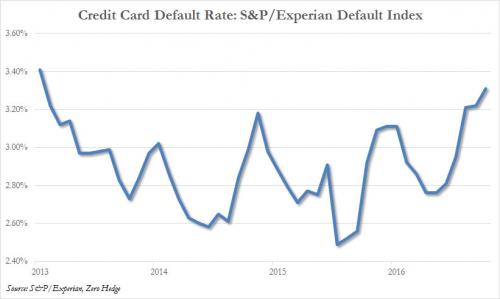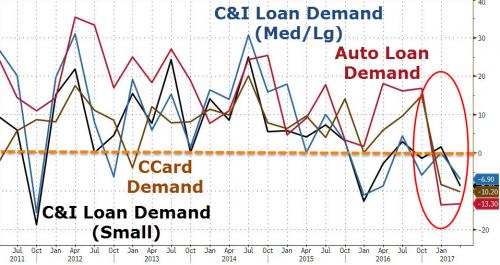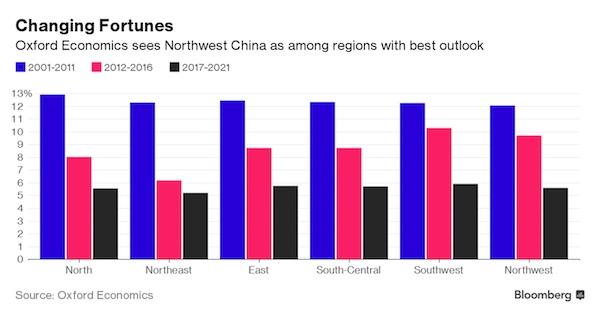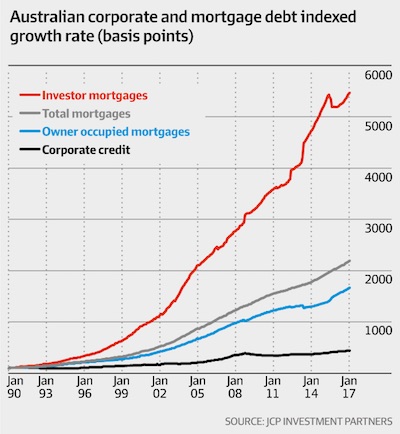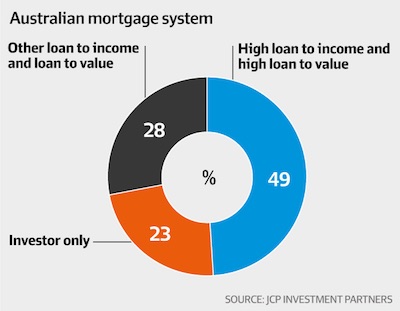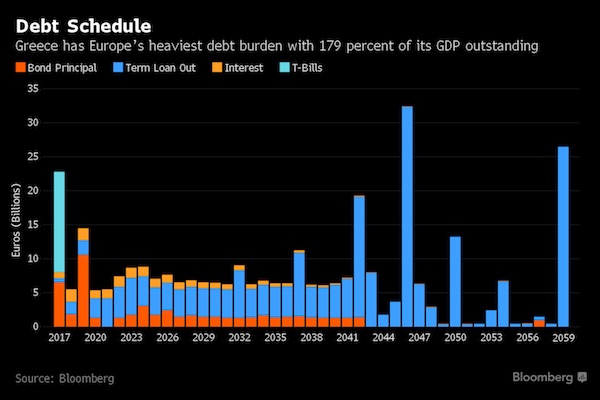
Henri Matisse Luxury, calm and pleasure 1904



Roger Stone
My sources tell me that Joe Biden's pollsters informed Biden that he has an 85% probability of defeat and that he is now trailing by 6 points in Pennsylvania.
Joe Biden is TAKING DOWN the entire Democrat Party with him! pic.twitter.com/F4yUreepX7
— Roger Stone (@RogerJStoneJr) July 12, 2024

Biden press
NEW: President Joe Biden lasts an entire hour for his highly anticipated “Big Boy” press conference.
The president refused to step down as he slurred his way through the press conference however he did exceed expectations.
My takeaways:
Biden did better than… pic.twitter.com/2wJ43eTL1t
— Collin Rugg (@CollinRugg) July 12, 2024

Fallon
https://twitter.com/i/status/1811809637836161076

Tucker Biden
It’s time for media outlets who have done interviews with President Joe Biden over the last couple years to release full transcripts.
Were there signs of cognitive decline? Were they subtle or obvious?
And if they were obvious, why were they left on the cutting room floor?… pic.twitter.com/0dqeC0MZSM
— Catherine Herridge (@C__Herridge) July 11, 2024

Straight-faced no less.
Maddow: President Biden showed a startlingly impressive command of the issues at his press conference. He is not only strong on foreign policy, he is just just fundamentally right on foreign policy in the way that he talks about it. It just shows you he is a master of the foreign… pic.twitter.com/gHhernZ7A6
— Biden-Harris HQ (@BidenHQ) July 12, 2024

PA
https://twitter.com/i/status/1811619390418485260

Jon Stewart fails painfully – for same reason they can’t meme
They’re all turning on Joe – lol.
— Catturd ™ (@catturd2) July 11, 2024


“The question remains, however, who will speak out on behalf of peace if not Trump, Putin, and Orban?”
Note: The others owe their careers to donations from the MIC.
• Trump, Orban, Putin: Why Are All The ‘Dictators’ Hellbent On Peace? (Bridge)
One of the greatest farces of these modern times is that those who scream the loudest about democracy and human rights are the very same people who violate international norms at every opportunity. In the June issue of The New Republic, a left-leaning US political journal, a scowling Donald Trump was featured on the cover sporting a Hitler moustache above a caption that read: “American fascism, what it would look like.” [..]
We chose the cover image, based on a well-known 1932 Hitler campaign poster, for a precise reason: that anyone transported back to 1932 Germany could very, very easily have explained away Herr Hitler’s excesses and been persuaded that his critics were going overboard. After all,… pic.twitter.com/x79Rkh86O1
— The New Republic (@newrepublic) July 7, 2024
There’s just one problem with the journal’s nervous handwringing: Trump has already served a four-year term as US leader and there was no visible sign of fascist goosestepping down Main Street during that period. In fact, just the opposite is true. While Adolf Hitler invaded Poland on September 1, 1939, thus triggering World War II, Trump went down in the history books as the first American commander-in-chief in modern times to avoid a military conflict. Now on the campaign trail for the second time, with the insatiable defense industry licking its chops for more profits, the Republican frontrunner has declared he would end the Ukraine-Russia conflict in 24 hours if reelected. When it is considered that ‘democracy’ today primarily works on behalf of the military industrial complex and other associated business interests, it is easier to understand how Trump is described in the corporate-owned media as an existential threat to the American republic. Peace is the last thing on Washington’s mind, and Russia understands that better than any country.
Back in 2008, the “dictator” Vladimir Putin delivered his now-famous speech at the Munich Security Conference where he warned his Western colleagues on the dangers of military expansion. “NATO expansion… represents a serious provocation that reduces the level of mutual trust. And we have the right to ask: against whom is this expansion intended? And what happened to the assurances our Western partners made after the dissolution of the Warsaw Pact? Where are those declarations today? No one even remembers them.” Despite Putin’s explicit warning, NATO went on to add an additional six members to the alliance, bringing the total number to 32, with Ukraine, ignoring Moscow’s major red line, scheming to be number 33. For anybody who asserts this is only a “defense alliance” would do well to consider what America’s response would be if all of Latin America and the border state of Mexico were joining a military alliance led by Moscow. Needless to say, we would be knee-deep in bloodshed by now. Yet Russia is supposed to accept an endless military incursion smack up against its border.
This was certainly not the last time Russia attempted to broker a peace deal with Washington. Almost eight years after the 2014 Maidan Revolution, and months before Moscow kicked off its special military operation in Ukraine, the Kremlin released its plan for peace on the continent. Among other things, the draft treaty called for the US and Russia to refrain from deploying troops in regions where they could be perceived as a threat to each other’s national security, as well as a ban on sending their troops and military hardware into areas where they could strike each other’s territory. The treaty was also designed to ban the deployment of intermediate-range missiles in Europe. Had the Western powers consented to the plan – it barely made headlines in the NATO countries – it’s not difficult to imagine decades of peace between east and west, the very last thing that Washington wants.Instead, the US and its European puppets placed Russia in an impossible position with regards to the ongoing militarization and Nazification of Ukraine, forcing it to respond as any other country concerned about its national security would.
This leads us to the West’s third favorite bogeyman, Hungarian Prime Minister Viktor Orban, who has dared to declare that his country is predominantly Christian and conservative and has every right to stay that way. Orban, whose country now holds the rotating EU Council presidency, went on a peace-making tour with stops in Moscow, Kiev, Beijing, and Washington (where he ruffled more than one hawk’s feathers by visiting Trump at Mar-a-Lago instead of Biden in DC). The frustration on the part of Brussels as it watched the Hungarian “tyrant” speak out in favor of reducing weapons sales was laughable if not downright pathetic. “Hungary has presented the trips as a ‘peace mission’ to help negotiate a ceasefire for the war in Ukraine. Orban may consider himself as one of the few who can speak to both sides – but in reality he has no mandate to do so,” wrote Armida van Rij, a senior research fellow at Chatham House, a European think tank. The question remains, however, who will speak out on behalf of peace if not Trump, Putin, and Orban? The answer thus far is nobody.While there are certainly other statesmen besides Trump, Putin, and Orban on the international stage who can make the case for peace, time is running out to hear those critical voices.

“We discussed ways to make peace. The good news of the day: he’s going to solve it!”
“Thank you Viktor. There must be PEACE, and quickly. Too many people have died in a war that should never have started!”
• Orban Meets Trump To Talk ‘Peace Mission’ (RT)
Hungarian Prime Minister Viktor Orban has met with GOP presidential frontrunner Donald Trump as part of the former’s effort to settle the Ukraine conflict. The Hungarian leader, who has repeatedly criticized the West’s approach to the hostilities and called for an immediate ceasefire, traveled to Russia, Ukraine, and China last week to discuss prospects for a peaceful settlement. He later attended NATO’s annual summit in Washington, but did not hold high-level talks with US President Joe Biden. Writing on X (formerly Twitter) on Thursday, Orban said he visited Trump’s Mar-a-Lago residence in Florida as part of what he called “peace mission 5.0.” “We discussed ways to make peace. The good news of the day: he’s going to solve it!” the Hungarian Prime Minister noted, posting a photo of him standing next to Trump, with both smiling.

The GOP presidential frontrunner responded to Orban, writing on the Truth Social network: “Thank you Viktor. There must be PEACE, and quickly. Too many people have died in a war that should never have started!” Orban previously hailed Trump as “a man of peace,” under whose watch the US “did not initiate a single war.” The Republican has repeatedly vowed to end the Ukraine conflict within 24 hours if elected. While the details of this plan remain sketchy, last week Politico reported, citing sources, that Trump could strike a deal under which “NATO commits to no further eastward expansion,” specifically into Ukraine and Georgia while holding talks with Russian President Vladimir Putin “over how much Ukrainian territory Moscow can keep.”
During his visit to Kiev, the Hungarian leader called on Ukraine’s Vladimir Zelensky to agree to a ceasefire with Russia, a proposal the latter rejected. Zelensky also suggested that Orban does not have the clout required to negotiate an end to the conflict, noting that only the US, EU, or China could fill that role. Orban also traveled to Russia and met with Putin in an attempt to find, as he put it, “the shortest way out” of the Ukraine conflict. Numerous media reports suggested that this trip outraged many Western officials. White House National Security Adviser Jake Sullivan said that Ukraine was right to be concerned by attempts to negotiate peace without its participation. “Whatever adventurism is being undertaken without Ukraine’s consent or support is not something that’s consistent with our policy, the foreign policy of the United States,” he stressed.

“..The last phone call between Biden and Putin took place in late December 2021..”
• Biden Sees ‘No Reason’ To Talk To Putin (RT)
US President Joe Biden has said he has no reason to talk with his Russian counterpart Vladimir Putin, including about the Ukraine conflict. However, he also said he would not refuse to engage with any world leader. Speaking to reporters on Thursday, Biden was asked whether he would still be able to “deal” with Putin and Chinese President Xi Jinping in a few years. “I’m ready to deal with them now,” he replied, noting that he maintains contact with Xi. However, when it comes to the Russian leader, Biden said he had “no good reason to talk to Putin” at the moment. “There’s not much that he is prepared to do in terms of accommodating any change in his behavior,” he added, referring to the hostilities between Moscow and Kiev. “I’m not ready to talk to Putin unless Putin is ready to change his behavior.”
However, Biden then said he was open to engagement with “any leader who wants to talk,” including Putin. He recalled that the last time the pair had a direct conversation, they were discussing an arms control agreement relating to nuclear weapons in space. “That didn’t go very far,” he added. The last phone call between Biden and Putin took place in late December 2021, several weeks before the start of Russia’s campaign in Ukraine, which resulted in bilateral relations plummeting to their lowest point since the Cold War.
Kremlin spokesman Dmitry Peskov said last month that Russia was ready to hold talks with the US but only if such dialogue is “comprehensive” and includes not only arms control issues but also the Ukraine conflict. “It is impossible to take out any individual segments from the general complex of accumulated problems,” he said, acknowledging that both sides need to engage to address mounting problems in the global security architecture. On Thursday, Putin’s name was again mentioned by Biden during a joint event in Washington when he confused Ukraine’s Vladimir Zelensky for the Russian leader, exacerbating concerns about his mental state, which have been mounting since his disastrous debate performance against GOP rival Donald Trump last month.

“..unlimited long-range strikes inside Russia is crucial for “having Ukraine on the map” and not allowing Moscow to “attack half of the planet.”
• Zelensky Slams ‘Crazy’ Limits On Russia Strikes (RT)
Ukraine’s Vladimir Zelensky on Thursday lashed out at Kiev’s foreign backers for their reluctance to lift the remaining limitations on the use of Western-supplied weapons for long-range strikes inside Russia. Kiev already has the greenlight from several Western states to hit “legitimate” targets inside Russia with their weapons, as well as a concession from Washington to strike beyond Russia’s border near the city of Kharkov. However, Zelensky has been pushing for the strike range to be extended – a prospect Moscow has warned would constitute an escalation of the conflict. Speaking at a press conference at the NATO summit in Washington, Zelensky claimed that allowing Kiev to launch unlimited long-range strikes inside Russia is crucial for “having Ukraine on the map” and not allowing Moscow to “attack half of the planet.”
“If we want to win, if we want to prevail, if we want to save our country and to defend it, we need to lift all the limitations,” Zelensky stated. He cited week’s tragedy at the Okhmatdet children’s hospital in Kiev, which Ukraine has claimed was hit by a Russian missile. Moscow has insisted that the facility was hit by a Ukrainian air-defense missile. “That is a crazy question why we can’t answer and attack these… military bases from where these guided bombs from jets or missiles came, targeted us and killed our children,” Zelensky argued. Kremlin spokesman Dmitry Peskov said on Wednesday that Kiev is deliberately using tragedies in its PR campaigns ahead of important international events to demand more support from the West. Russia’s ambassador to the US, Anatoly Antonov, claimed that Kiev’s Western supporters saw the hospital tragedy as a “perfect gift” to justify escalation of the conflict.
US President Joe Biden on Thursday reaffirmed the limits on how Ukraine can use American-supplied weapons, arguing that it “wouldn’t make sense” to allow Zelensky to strike deep inside Russia.“We have allowed Zelensky to use American weapons in the near border regions of Russia. If he had the opportunity to strike Moscow, strike the Kremlin, would that make sense? No, it wouldn’t,” Biden said at a press briefing in Washington. The UK, which has a ban on using its long-range Storm Shadow missiles to hit targets deep inside Russia, has also apparently distanced itself from earlier statements by Prime Minister Keir Starmer. The premier on Wednesday signaled he was loosening restrictions on how the missiles are used, saying “it is for Ukraine to decide how to deploy [them].” However, according to a report by The Telegraph citing Downing Street, UK government policy “had not changed” regarding the deployment of the long-range missiles, and the limitations remain in place.
Lavrov
Interviewer:- “Zelensky says that Russia plan to use tactical Nuclear Weapons”
Russian Foreign Minister Lavrov:- “he says many things – depends on what he drinks or what he smokes” pic.twitter.com/5owBCktUEp
— Concerned Citizen (@BGatesIsaPyscho) July 12, 2024

“..the Ukrainian leader announced that he had “learned about the permission to use Storm Shadow missiles against military targets in Russian territory.”
• UK Disputes Zelensky’s Long-range Strikes Claim – Telegraph (RT)
Claims by Ukraine’s Vladimir Zelensky that the UK has cleared him to order attacks deep inside Russia with British-supplied weapons are not true, according to The Telegraph. After a meeting with Prime Minister Keir Starmer on Wednesday, the Ukrainian leader announced that he had “learned about the permission to use Storm Shadow missiles against military targets in Russian territory.” The two officials “had the opportunity to discuss the practical implementation of this decision” he added. The Telegraph reported on Thursday that the situation was “more nuanced,” according to a senior defense source. In fact, there has been no policy change regarding the weapons after the new Labour government came to power, the British newspaper explained.
The Ukrainian use of air-launched long-range cruise missiles produced jointly by the UK and France was the source of a diplomatic spat in May, when then-Foreign Secretary David Cameron expressed sympathy for Kiev’s desire to use them outside of what London recognizes as Ukrainian territory. Ukraine “has the right to defend itself,” he said at the time, which many observers as well as the Russian government interpreted as a permission to deliver such strikes. British officials later indicated that certain limitations remained in place for Storm Shadow systems. Starmer this week said it was “up for Ukraine to decide how to deploy” the missiles, prompting the Kremlin to call his remarks “irresponsible and escalatory.”
Sources told The Telegraph that Zelensky would have to “seek assurances elsewhere” before he could fire British weapons deep inside Russia. Three nations – presumably Ukraine, the UK, and France – would have to sign off on such attacks, and it was not a done deal that Kiev would get its way, the report suggested. A senior defense official told the newspaper: “It’s not going to happen.” Zelensky urged Western backers, particularly the US, to lift all limitations on how Kiev can use their arms, during this week’s NATO summit in Washington DC. US President Joe Biden indicated that there will be no policy change. “If he had the capacity to strike Moscow, strike the Kremlin, would that make sense?” Biden said of Zelensky at a joint press conference on Wednesday. Russian President Vladimir Putin has warned that should Western arms be used to strike targets deep inside Russia, Moscow could provide similar military capabilities to parties hostile to the US and its allies elsewhere in the world.

About as much sense as strikes on the White House.
• Ukrainian Strikes On Kremlin Would ‘Make No Sense’ – Biden (RT)
The US sees no reason to allow Ukrainian strikes deeper inside Russian territory despite pleas from Kiev for permission to launch such attacks, President Joe Biden has said. Washington approved Ukrainian cross-border attacks using US-supplied weapons against Russian targets in late May, arguing that the shift in policy would help repel Moscow’s offensive in the border Kharkov Region. Biden said at the time that the US was permitting strikes “only in proximity to the border [with Russia] when [Russian weapons] are being used on the other side of the border to attack specific targets in Ukraine.” Russia launched its offensive in Kharkov Region in a bid to establish a so-called “cordon sanitaire” to shield its border areas from recurring Ukrainian attacks targeting civilians.
According to the Washington Post, Ukraine is allowed to strike some 100km inside Russian territory as recognized by the West, with officials in Kiev complaining that they were not authorized to attack some key airfields. Pentagon officials later also confirmed that Ukraine was allowed to strike targets beyond Kharkov Region. Ukraine’s Vladimir Zelensky, however, has insisted that all restrictions be lifted, calling it “crazy” that Kiev was being prevented from retaliating in response to some Russian strikes. Speaking at a press conference in Washington, DC on Thursday, Biden signaled that the US had no plans to loosen restrictions further.
“We’ve allowed Zelensky to use American weapons in the near term and the near abroad into Russia… If he had the capacity to strike Moscow, strike the Kremlin, would that make sense? It wouldn’t.” He added that Kiev and the West should ask itself “What’s the best use of the weaponry [Zelensky] has and the weaponry we’re getting to him?” President Vladimir Putin has said Ukrainian attacks inside Russian territory using Western-supplied weapons are “close to aggression,” while warning of an asymmetrical response.
Meanwhile, the US has essentially given Kiev carte blanche to use American-made weapons in attacks on Russian territories claimed by Ukraine. In late June, Moscow accused Kiev of launching a strike using long-range ATACMS missiles on Crimea, which killed four civilians and injured more than 150 on a beach in Sevastopol. Russia claimed that Washington was complicit in the attack, saying it had enabled a “premeditated terrorist missile attack.” Commenting on the tragedy, State Department spokesman Matthew Miller dismissed the accusations as “ridiculous.” He said that, while the US “regret[s] any civilian loss of life in this war,” it supplies Kiev with weapons “so it can defend its sovereign territory against armed aggression.”

“Indeed, no issue has been resolved in favor of Ukraine. That’s the reality of NATO today..”
• Scott Ritter: Ukraine an ‘Open Target for Russia to Take Apart’ (Sp.)
No matter how many and what kind of air defense systems NATO plans to donate to the Kiev regime, Russia will continue to pursue its military objectives while grinding through those weapons, underscored Scott Ritter. Fueling the ongoing proxy war in Ukraine will leave the West facing depleted stocks of its own air defense systems. Russia is able to wipe out the military equipment provided to the Kiev regime, especially air defense, at a rate “far greater than the West can even replenish its own stocks,” former US marine intelligence officer Scott Ritter told Sputnik. “This is a losing equation. And without air defense, Ukraine is literally an open target for Russia to take apart as it best sees fit,” said Ritter. On the opening day of the recent NATO summit in Washington, US President Joe Biden pledged to provide Ukraine with five new strategic air defense systems and dozens of smaller, strategic anti-air batteries over the coming year.
In remarks delivered at the opening of the summit, Biden said that to donate the Patriot systems, the US would join forces with Germany, Romania, Italy, and the Netherlands. The announcement came two days after a missile strike hit a children’s hospital in Kiev, with the Zelensky-led neo-Nazi regime and its Western allies groundlessly accusing Russia of targeting the building. Indeed, the well-timed announcement from Washington comes as Ukraine seems to have “a particular desire” for the Patriot air defense system, noted Ritter, but “it’ll take whatever it can get.” According to the ex-marine intel officer, even after Ukraine gets the promised air defenses, it will face a big problem reconstructing an integrated air defense umbrella.
Back when Ukraine was initially provided with the NATO air defense systems such as the Patriots, NASAMs, IRIS-T, French (SAMP/T) Mamba – they had a Soviet era air defense umbrella that consisted primarily of the S-300 air defense system, the Buk, others, he explained. However, in the months of the proxy conflict this air defense umbrella became nonexistent, underscored Ritter, adding: “And when Ukraine brings in their air defense systems, they have to do so in a very makeshift, haphazard manner. They aren’t able to use them the way they were designed. This requires trickery, you know, turning on and off radars, firing missiles before radar lock is taking place. It’s a very inefficient way to use air defense systems. And because Russia is able to put an intelligence, surveillance and reconnaissance umbrella over Ukraine, anytime Ukraine uses air defense, it’s detected.”
Since Russia’s Armed Forces are able to in very short order locate and destroy the systems, Kiev is in “one of these vicious cycles where there simply isn’t enough weapon systems available to allow Ukraine to build the air defense umbrella it needs,” remarked the expert. “This is one of the detrimental consequences of the attritional warfare that’s being waged today in Ukraine… And it’s one of the issues that this NATO summit has not been able to resolve in favor of Ukraine. Indeed, no issue has been resolved in favor of Ukraine. That’s the reality of NATO today,” concluded Scott Ritter.

“If anything Russia is acting more of a leader here and thus it may strengthen Russia’s hand..”
• NATO’s Obsession Boosts Russia’s Role as Global Leader – Rasmussen (Sp.)
The latest NATO joint declaration condemning Russia appears to be backfiring and instead establishing Moscow more than ever as the leader of the global resistance against US hegemony, retired US Army Lieutenant Colonel and political consultant Earl Rasmussen, told Sputnik. “If anything Russia is acting more of a leader here and thus it may strengthen Russia’s hand,” former vice president of the Eurasia Foundation Rasmussen said. Russia was the central focus of the 32-nation Alliance declaration that was issued on Wednesday. The declaration stated that Russia remains the most significant and direct threat to the Allies’ security, and expressed profound concern over the deepening strategic partnership between Russia and China, which aims to undermine and reshape the rules-based international order. However, despite its hostile tone towards Russia and China, Rasmussen said he doubted the NATO summit had achieved any concrete results.
“I think in general the summit will accomplish very little. It will act as a cheerleader/pep-talk. Very little seems to have been accomplished thus far, with few exceptions.” he said. The declaration document itself showed a provocative mood towards Russia and China, Rasmussen observed.”It discusses expansion in Europe as well as stronger coordination in Asia and the Middle East in addition to funding contributions and weapon system modernization,” he added. NATO leaders in their declaration also displayed a clearly stated objective to increase the number of joint military exercises and to establish a security presence along their eastern borders with Russia, Rasmussen noted. The growing tensions expressed at the summit looked likely to endure, Rasmussen said, adding that China and Russia should react with patience but determination against the growing hostility they faced from the West.

“European male ethnicities are so oppressed by their own governments and by immigrant-invaders favored by European governments, that the defense ministers of Europe are women. What does a white ethnic European male have to fight for?”
• Why Is the West Preparing for War? (Paul Craig Roberts)
One result of the just concluded NATO Summit is Germany’s decision to host US intermediate-range missiles. Prior to 2019 when Washington cancelled the INF Treaty, the treaty prevented such deployment. The INF Treaty was signed by Ronald Reagan and Mikhail Gorbachev on December 8,1987, and the treaty was ratified on June 1, 1988. The treaty was part and parcel of ending the cold war. Reagan called the treaty a “step toward a safer world.” “The 1987 Intermediate-Range Nuclear Forces (INF) Treaty required the United States and the Soviet Union to eliminate and permanently forswear all of their nuclear and conventional ground-launched ballistic and cruise missiles with ranges of 500 to 5,500 kilometers. The treaty marked the first time the superpowers had agreed to reduce their nuclear arsenals, eliminate an entire category of nuclear weapons, and employ extensive on-site inspections for verification. As a result of the INF Treaty, the United States and the Soviet Union destroyed a total of 2,692 short-, medium-, and intermediate-range missiles by the treaty’s implementation deadline of June 1, 1991.”
Blaming Russia the Trump administration pulled out of the treaty. The consequence was to kill the nuclear disarmament that the INF Treaty began and to renew the arms race. If I had to bet I would say Washington’s withdrawal was a consequence of the US nuclear industry needing the source of profits that the arms race provided and the neoconservatives’ determination to revive US hegemony through the buildup of force. If Russia was truly out of compliance, Trump’s focus should have been to work to bring Russia into compliance, not terminate the treaty. The efforts of several American presidents and Soviet leaders in the 20th century to defuse tensions and to build trust were squandered by Washington in the 21st century. Regardless, what is clear is that Washington is pushing both Europe and Russia into preparing for war, and is itself preparing.
The US Senate has joined the House of Representatives in creating a draft registration system from which to field a conscripted army. The Senate’s version includes women in the draft, as equal treatment requires. Clearly, Washington sees the need for a larger army than a volunteer army can provide. Now that the Biden regime is supplying F-16s and long-range missiles to Ukraine, weapon systems that Biden said would never be given to the Ukrainians, along with targeting information, clearly Washington’s intent is to further widen the war by carrying it deep into civilian areas of Russia. Simultaneously, Washington is using its NGOs in Georgia to orchestrate a color revolution there in order to open a second front against Russia. Putin’s slow forever war in Ukraine has played directly into Washington’s hands.
China is the main focus of Washington’s strategy of isolating Russia. At the recent NATO Summit China was accused of being a “decisive enabler” of Russia’s conflict with Ukraine. By allegedly supplying armaments to Russia, China is accused of challenging “our interests, security and values.” I would have expected a different Chinese reply than was made. China should have said to Washington/NATO: “You started the conflict and your weapons systems and French troops are supporting and widening the conflict. You have blocked all efforts to end the conflict; yet you dare accuse us of responsibility for it.” Instead, the Chinese disavowed supplying Russia with any military support. This is an extremely weak response. It suggests that all the Russian-Chinese assurance of a “no-limits partnership” is just words. An appropriate response from China would have been: “We are considering sending 500,000 of our best soldiers to serve under Russian command in Ukraine and have called up another million men for military training.
A response such as this is what would end the conflict before the dumbshit hegemonic West puts us all in a war of annihilation. In recorded history one can find very few competent civilian and military leaders. Alexander the Great, Constantine, Charles Martel, Charlemagne, the Duke of Marlborough, Robert E. Lee. No such men exist today, but the weapons are far more terrible. Moreover, modern war targets civilians and civilian infrastructure, as the Israelis are doing in Gaza. The goal is less to defeat an opposing army than it is to foreclose an opponent’s ability to conduct war. In Europe a warrior class no longer exists. European male ethnicities are so oppressed by their own governments and by immigrant-invaders favored by European governments, that the defense ministers of Europe are women. What does a white ethnic European male have to fight for?
In the US the fighting force has always come from the southern states. But what have these traditional Americans, these military families, witnessed? They have seen all southern names struck from military bases. They have experienced their promotions on hold while homosexuals, black females, and transgendered people confused about their own gender are promoted. Taking orders from such people is not a southern man’s idea of the military. So recruitment has collapsed. There are so few people willing to fight for America that Congress entertains proposals to enroll immigrant-invaders, paid with citizenship for fighting for American hegemony. America has reached the point that Rome reached. Once the Roman military was German, the Germans became the emperors. The Germans did a fairly decent job compared to the decadent Romans, but the Empire was exhausted by its internal conflicts and collapsed. Perhaps it is the collapse of the West that Putin and XI are banking on. Why bother to fight people busy destroying themselves.

“NATO’s aim is to regain control of Russian resources and finances as the West enjoyed in the 1990s, when it asset-stripped formerly state-owned industries, enriching themselves and a new class of oligarchs while impoverishing the Russian people. Putin is now standing in their way.”
• NATO Summit: Collectively Losing Their Mind (Lauria)
On March 7, 2022, two weeks after Moscow entered the civil war in Ukraine, U.S. Secretary of State Antony Blinken told CBS News from Moldova that the U.S. would give Poland a “green light” to send Mig-29 fighter jets to Ukraine. Within days the Pentagon shot down the idea. Then U.S. House Speaker Nancy Pelosi and Senate Majority Leader Chuck Schumer also supported the Polish planes scheme, but the Pentagon rejected it because it “could result in significant Russian reaction that might increase the prospects of a military escalation with NATO,” according to then Pentagon spokesman John Kirby. But yesterday Blinken told a public policy forum at the NATO summit in Washington: “As we speak the transfer of F-16 jets is underway coming from Denmark, coming from the Netherlands and those jets will be flying in the skies of Ukraine this summer to make sure that Ukraine can continue to effectively defend itself against the Russian aggression.”
It is not quite NATO declaring a no-fly zone over Ukraine, which was dismissed by President Joe Biden in March 2022 because “that’s called World War III, okay? Let’s get it straight here, guys. We will not fight the third world war in Ukraine.” “President Biden’s been clear that … if you establish a no-fly zone, certainly in order to enforce that no-fly zone, you’ll have to engage Russian aircraft. And again, that would put us at war with Russia,” added Defense Secretary Lloyd Austin at the time. Though not declaring a no-fly zone, these are still NATO fighter jets leaving from NATO countries to operate with Ukrainian pilots against Russian aircraft in Ukrainian airspace. More dangerously, NATO is permitting Ukraine to fly the F-16s to attack inside Russian territory. So what changed since March 2022 to allow the U.S. and NATO to risk, in the previous words of Biden, “World War III?”
What’s changed is that back then the White House and the Pentagon still thought the strategy of economic and information warfare plus a proxy ground war would defeat Russia in Ukraine, and ultimately bring down Vladimir Putin in Moscow. But for more than a year now it’s been evident that the U.S. — and NATO — have lost the economic and information war, as well as the proxy fighting on the ground in Ukraine. One year into the war, French President Emmanuel Macron and German Chancellor Olaf Scholz told Ukrainian President Volodymyr Zelensky at a dinner in February 2023 that he had to face facts: Ukraine would lose the war and should negotiate a settlement with Moscow. The Wall Street Journal quoted Macron as telling Zelensky that “even mortal enemies like France and Germany had to make peace after World War II.” Macron told Zelensky “he had been a great war leader, but that he would eventually have to shift into political statesmanship and make difficult decisions,” the newspaper reported.
U.S.-led NATO could not launch its economic, information and proxy war against Russia without cause. That cause would be Russia invading Ukraine to defend ethnic Russians in a civil war that had raged since 2014, sparked when the U.S. helped to overthrow the democratically-elected government that year. The economic war, intended to spur Russians to overthrow their government, has failed spectacularly. The ruble did not collapse despite sanctions on the Russian central bank. Nor has the economy. Instead an alternative economic, commercial and financial system that excludes the West has arisen with China, India and Russia in the lead, and most of Asia, Africa and Latin America taking part in what appears to be the final chapter of Western colonialism. The sanctions instead backfired on the West, especially in Europe. The information war has failed across the world. Only the United States and Europe, which consider itself “the world,” believe their own “information.”
The proxy war is being lost on the ground, though more than $100 billion in U.S. aid to Ukraine has created a bloodbath. There will either be a negotiated settlement in which Ukraine loses territory; a total Russian victory; or potentially the final war. The U.S. pushed Russia to the brink to provoke its intervention. It began with a 30-year NATO expansion eastward with NATO exercises on Russia’s borders while calling for Ukraine to become a member, a call reiterated at the summit yesterday. In December 2021 the West rejected Russian treaty proposals to roll back NATO troop deployments and missile installations in Eastern Europe, creating a new security architecture in Europe. NATO’s aim is to regain control of Russian resources and finances as the West enjoyed in the 1990s, when it asset-stripped formerly state-owned industries, enriching themselves and a new class of oligarchs while impoverishing the Russian people. Putin is now standing in their way.

“In her presentation for the UN, Bell omitted the medical evidence. Her military expert went unnamed, his evidence unexamined. This is called hearsay in a British or American court..”
• The Warhead Evidence, Medical And Autopsy Reports Are Missing (Helmer)
According to the Russian Foreign Ministry spokesman, Maria Zakharova, the Okhmatdet hospital had been struck by a US-made, Norway-supplied NASAMS air defence missile, fired by a Ukrainian battery attempting to protect the Artyom (Artem) plant. “Many eyewitnesses and other sources have already confirmed that a Western-made NASAMS surface-to-air missile hit a building of the Okhmatdet Hospital for Children in Kiev. Officials on Bankovaya Street [Zelensky regime headquarters] immediately started blaming Russia for deliberately killing children. However, no one said that the Artyom Plant is located next to the affected clinic, and that Defense Ministry buildings and military warehouses are also located next door. Certainly, no one said that pro-Bandera supporters are deliberately deploying air defence systems in residential areas, using civilians as a human shield.
The Kiev junta has been using purely civilian enterprises for military purposes for a long time, either using them to assemble and repair military equipment or to store Western-made weapons and military equipment.” The Russian representative at the United Nations, Vasily Nebenzya, currently rotational president of the UN Security Council, told a special council session that the strike on the hospital had been a Ukrainian one, not a Russian one. He added: “The X-101 missile would have done a lot more damage to the building it hit [Min 6:52]…if it had been a Russian missile, there would have been nothing left of the building and the children and most of the adults would have been killed rather than wounded [Min 8:20]” Like Zakharova, Nebenzya identified military industrial targets. The two Russian officials have not identified the electric war targets.
They are not lying; they are telling less than the full truth. When that is understood from all the available evidence, there is no mens rea. No conviction in a western court of law. The prosecution’s case is dismissed. In war, especially in propaganda war, there is no such thing as independence. United Nations (UN) organizations from the UN Secretary-General and his office down the UN line, are not independent. In the current war they have taken the US-NATO side. In a briefing by Danielle Bell, a UN official in Kiev on Tuesday, the day after the air raid, she claimed “Analysis of the video footage and assessment made at the incident site indicates a high likelihood that the children’s hospital suffered a direct hit rather than receiving damages due to an intercepted weapons system. Of course, as was said earlier, this must be investigated. At the time of the attack, 670 child patients, mainly inpatients, were there together with more than a thousand medical staff.”
Bell, a Canadian national who has served beside US forces in Afghanistan and Iraq, did not say what she meant by “direct hit” and did not distinguish between warhead detonation, shrapnel wounds, and blast impacts. When prompted for more evidence, Bell said: “We haven’t determined.” In a British or American courtroom, that is the end of proof of guilt beyond reasonable doubt. The defence lawyer would then announce to judge and jury the prosecution has failed and move for summary dismissal. But the UN official announced differently, conclusively: “We’ve assessed the factors that suggest the likelihood that it was a direct hit of a KH-101 [X-101 is the Cyrillic acronym translated into English] missile launched by the Russian Federation. The factors suggesting that it was a direct hit are based on video footage, which shows the technical specification of the type of weapon that was used. It shows the weapon directly impacting the hospital rather than being intercepted in the air. And thirdly, my military, our military expert, visited the site yesterday and observed damages at the site that were consistent with a direct hit.”
To measure “consistent with a direct hit” in a homicide prosecution requires clinical and autopsy evidence of the cause of death or injury to individuals. In the Kiev hospital case, to date there is no evidence of fragmentation metal or cluster elements from the X-101 warhead causing either death or injury in the hospital. No comparison has been published openly by the Ukrainians of X-101 warhead fragmentation and NASAMS warhead fragmentation. The warhead payload of the X-101 has been reported at 400 kg of high explosive fragmentation of metal elements. The warhead of the NASAMS missile is 20 kg of explosive.
Physical wounding by flying glass or collapsing structures is consistent with blast from outside the hospital. Wounds by warhead shrapnel identified in the bodies of the casualties by X-ray or CT and MRI scans can be compared for the source of the metal to distinguish between the X-101 and the NASAMS. This has not been done by the Ukrainian side. Without such evidence – protected by chain of custody to prevent tampering, substitutions of metal, and fakery – the prosecution fails. In her presentation for the UN, Bell omitted the medical evidence. Her military expert went unnamed, his evidence unexamined. This is called hearsay in a British or American court. For proof of actus reus, the judge will direct the jury that without circumstantial corroboration and cross-examination, the expert’s testimony has next to no evidential value in a homicide prosecution.

“..and direct a corporate looting operation of Russia’s oil and mineral riches. Ukraine was the doorway they had to go through to get that done.”
• The Cover Your Ass Olympics (Kunstler)
You can’t deny that “Joe Biden” did his goodest last night facing down a half-dozen pre-selected reporters representing blob-adjacent news orgs such as Reuters and NPR at the post-NATO meetup damage-control event billed as a “news conference.” Only a week after he declared himself to be the “first black woman vice-president,” he pivoted to correct the record, telling the DC press corps that he’d “picked Vice-president Trump to be vice-president. . .” and everyone in the room saw that they were back in that mortifying scene in The Caine Mutiny when the confused and incompetent Captain Queeg reaches for the ball bearings in his pocket. At the end of the harrowing hour, he minced his way offstage, leaving his Party of Chaos evermore sore perplexed as to how they might lever this burnt-out old hack out of the nomination they foolishly secured for him months ago.
It ain’t gonna be easy, as “JB” repeatedly insisted he had no intention of stepping aside, despite the forces mustering against him in Congress, the media, and Hollywood. Even CNN is turning on him. Meanwhile, the #VeepTrump clip went viral on social media. So much for damage control. You understand, don’t you, what a fiasco the 75th Anniversary DC NATO meetup itself was? Everyone in the room, including the key prime ministers and presidents, could sense how flimsy the alliance now appears, as led by our maundering near-zombie president. Like “Joe Biden,” NATO’s raison d’être has been exposed as badly out-of-date and dangerously unhinged. Secretary General Jens Stoltenberg kicked things off declaring that “Ukraine is on an ‘irreversible’ path to NATO.” This controverts what everybody in NATO knows is Mr. Putin’s clearest red line, and is therefore either a jape or a bit of recklessly provocative idiocy.
The truth of the matter is this: following its transition out of the failed Soviet experiment thirty years ago, Russia was never a threat to its European neighbors. All the talk of Vladimir Putin seeking to reassemble the old USSR empire was knowingly false, as is the chatter now about Russia looking to invade Europe. What Russia actually sought was to be regarded, once again, as a normal European nation able to conduct normal business with the rest of Europe. The USA wouldn’t allow it. Exactly why remains partially mysterious. Surely, post-1991, it was in the interest of US military contractors to maintain their Cold War revenue streams. To do that, a foreign hobgoblin had to be invoked — and perhaps China was not the best candidate, since it had begun manufacturing everything on sale in the Walmart — so Russia, with practically no export economy, was cast in that role.
And the politicians, too, surely liked creaming off their share of that military-industrial revenue stream, so they went along policy-wise, with figures like John McCain and Lindsay Graham leading the charge. But the US intel blob and State Department had darker motives, driven by an animus that has slowly revealed itself to be insane — just as the Democratic Party has turned obviously insane, adopting a playbook that could have been written by Franz Kafka. Being likewise insane, the intel blob and the neocons at State harbored an unappeasable hatred toward Russia that, since the Soviet collapse, allowed no accommodation and gelled into a naked avarice for seizing the resources of Russia with a long-term plan to subvert the Russian state, break it up the way they broke up Serbia in the 1990s, and direct a corporate looting operation of Russia’s oil and mineral riches. Ukraine was the doorway they had to go through to get that done.

Too much free speech? What does the 1st Amendment say about that?
• “The First Amendment is Out of Control” (Turley)
As I have laid out in testimony before Congress, Jen Easterly, who heads the Cybersecurity and Infrastructure Security Agency, extended her agency’s mandate over “critical infrastructure” to include “our cognitive infrastructure.” The resulting censorship efforts included combating “malinformation” – described as information “based on fact, but used out of context to mislead, harm, or manipulate.” So, you can cite true facts but still be censored for misleading others. The media has been running an unrelenting line of anti-free speech columns. Recently, the New York Times ran a column by former Biden official and Columbia University law professor Tim Wu describing how the First Amendment was “out of control” in protecting too much speech. Wu insists that the First Amendment is now “beginning to threaten many of the essential jobs of the state, such as protecting national security and the safety and privacy of its citizens.” He bizarrely claims that the First Amendment “now mostly protects corporate interests.”
So free speech not only threatens your life, your job, and your privacy, but serves corporate masters. Ready to sign your rights away? Wait, there is more. There is a movement afoot to rewrite the First Amendment through an amendment. George Washington University Law School Professor Mary Anne Franks believes that the First Amendment is “aggressively individualistic” and needs to be rewritten to “redo” the work of the Framers. Her new amendment suggestion replaces the clear statement in favor of a convoluted, ambiguous statement of free speech that will be “subject to responsibility for abuses.” It then adds that “all conflicts of such rights shall be resolved in accordance with the principle of equality and dignity of all persons.” Franks has also dismissed objections to the censorship on social media and insisted that “the Internet model of free speech is little more than cacophony, where the loudest, most provocative, or most unlikeable voice dominates . . . If we want to protect free speech, we should not only resist the attempt to remake college campuses in the image of the Internet but consider the benefits of remaking the Internet in the image of the university.”
Franks is certainly correct that those “unlikeable voices” are rarely heard in academia today. As discussed in my book, faculties have largely purged conservative, Republican, libertarian, and dissenting professors. The discussion on most campuses now runs from the left to far left without that pesky “cacophony” of opposing viewpoints. Experts at leading universities were fired or stripped of positions for questioning COVID claims. Conservative faculty have been hounded from schools and conservative sites have been targeted by government-funded programs. Thousands have been banned from social media. What is particularly maddening for many in the free speech community is how the left has responded to opposition to censorship and blacklisting. Some are claiming to be victims by those who criticize their work to target individuals and groups as disinformation.
Others, like comedian Jon Stewart mock those who object to the erosion of free speech by noting that conservatives are making these objections on television or online. So, according to Stewart, how can there be a problem if you are able to still object? The suggestion is that there can be no threat to free speech unless people are completely silenced. Stewart insists that “we are surrounded by and inundated with more speech than has ever existed in the history of communication.” In other words, because people can still speak, the well-documented systems of censorship and blacklisting must not be so bad. It is not clear what Stewart would accept as sufficient censorship. In universities, polls show both faculty and students afraid to speak openly. The government has funded a host of programs to pressure the source of revenue of conservative sites and to target dissenting voices.
Yet, because we are raising objections to these trends, Stewart laughs at the very notion that free speech is under fire. After all, he is doing just fine. What appears to be a punchline to Stewart is a bit more serious for others who have their livelihoods threatened by the anti-free speech movement. Stewart has the benefit of being a liberal comedian on a liberal network. Try being a conservative comedian today getting air time on most cable outlets or college campuses. Like so many academics, everything seems just fine to them. With the purging of opposition viewpoints, those who remain have little to complain about. The effort to assure citizens that “there is nothing to see here” is belied by a massive censorship system described by one federal court as “Orwellian.” Conservatives face cancel campaigns and blacklisting in academic and media forums.

“Mike Benz, a former Trump administration official, highlighted this to suggest the EU’s real motivation is to “use the DSA to force X to restaff the censorship squad fired when Elon took over.”
• EU Offered X Secret Censorship Deal – Musk (RT)
X (formerly Twitter) is facing persecution by the European Union because it rejected Brussels’ demand to secretly censor opinions on the platform, its owner Elon Musk has revealed. The EU announced on Friday that it considered X in violation of its Digital Services Act (DSA) and intended to levy massive fines against the company unless it changed its practices. “The European Commission offered X an illegal secret deal: if we quietly censored speech without telling anyone, they would not fine us,” Musk wrote in response. “The other platforms accepted that deal. X did not.” “We look forward to a very public battle in court, so that the people of Europe can know the truth,” he added. Musk bought Twitter in October 2022, after voicing displeasure over widespread censorship on the social media platform. He has since unbanned most blocked accounts, including that of former President Donald Trump.
When Musk announced “the bird is freed,” one of the responses came from Thierry Breton, the EU Commissioner for Internal Market. “In Europe, the bird will fly by our rules,” Breton said, with a reference to the DSA. On Friday, Breton explained the European Commission’s move against Musk by arguing that X violates the EU’s “transparency requirements” by denying access to “researchers,” among other things. “Back in the day, BlueChecks used to mean trustworthy sources of information. Now with X, our preliminary view is that they deceive users and infringe the DSA,” Breton said. According to the Commission, allowing anyone to obtain verification in exchange for a subscription fee “negatively affects users’ ability to make free and informed decisions about the authenticity of the accounts and the content they interact with.”
The Commission also objected that X does not maintain “a searchable and reliable advertisement repository” that would “allow for the required supervision and research into emerging risks.” What most bothered the EU body was that X does not allow scraping its public data by “researchers” or grant access to its application programming interface (API), as DSA mandates. Mike Benz, a former Trump administration official, highlighted this to suggest the EU’s real motivation is to “use the DSA to force X to restaff the censorship squad fired when Elon took over.” He further alleged that people who present themselves as researchers are actually “censorship activities & political operatives.” Musk reposted Benz’s analysis with just one word of comment: “Exactly.” X is now expected to respond to the Commission in writing. If the EU upholds Breton’s preliminary findings, X could be fined “up to 6% of the total worldwide annual turnover” and ordered to address its “breach” under “enhanced supervision,” the body said.




Magnetics
Magnetic reaction
pic.twitter.com/4XrxazUAKK— Science girl (@gunsnrosesgirl3) July 12, 2024

France fags
How cigarettes were once packaged in France in 1930.pic.twitter.com/76k6iBMbC7
— Massimo (@Rainmaker1973) July 12, 2024

Doggo dive
https://twitter.com/i/status/1811515980280926540

Honey
https://twitter.com/i/status/1811733375356424527



Handstand
https://twitter.com/i/status/1811744486516461940

Kitty
last kitty is no sheep! pic.twitter.com/Zy3PSff2qV
— Kitty Cat Empire (@KittyCatEmpire) July 11, 2024


Support the Automatic Earth in wartime with Paypal, Bitcoin and Patreon.





